Improper Landscape Grading
Improper landscape grading directs rainwater and runoff toward your foundation, creating excessive crawl space moisture. This leads to mold growth, foundation damage, wood rot, and other structural problems. Addressing these issues early with professional grading solutions can save you from costly repairs and long-term harm to your home.
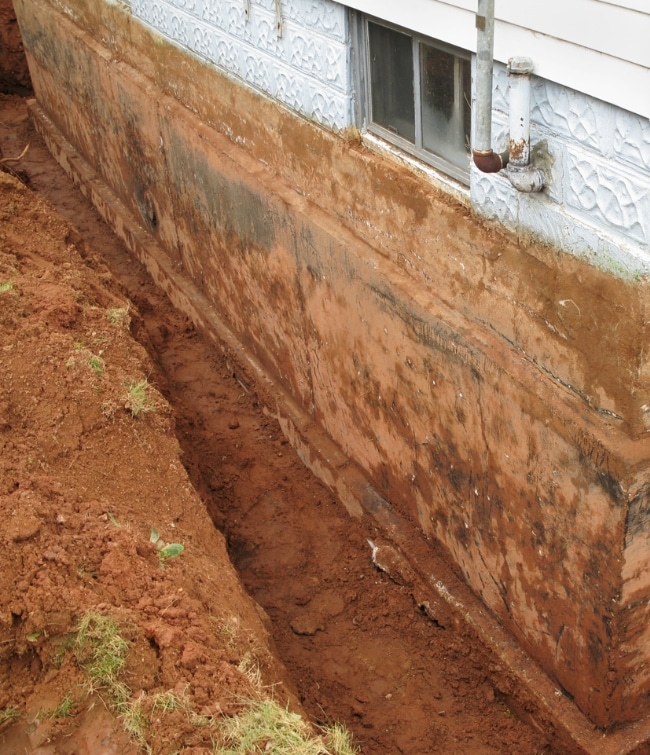
How Improper Landscape Grading Affects Your Home
Did you know that over 60% of crawl space moisture problems are directly linked to improper landscape grading and poor drainage systems?
When your yard slopes toward your home, rainwater, and runoff pools near the foundation seep into the crawl space and create excess moisture levels. This environment promotes mold growth, wood rot, and pest infestations, all compromising foundation stability and indoor air quality.
Saturated soil increases hydrostatic pressure, leading to foundation cracks and costly repairs. High humidity also weakens insulation, forcing your HVAC system to work harder and increasing energy bills.
Don’t let poor grading compromise your home’s safety—schedule a free inspection with LUX Foundation Solutions today to protect your crawlspace from moisture, mold, and long-term damage!
Top Causes of Crawl Space Issues from Poor Landscape Grading
Improper landscape grading, caused by poor construction planning or natural changes in the landscape, can lead to standing water around your foundation. This water seeps into the crawl space, causing damage. Here’s what commonly contributes to the problem:
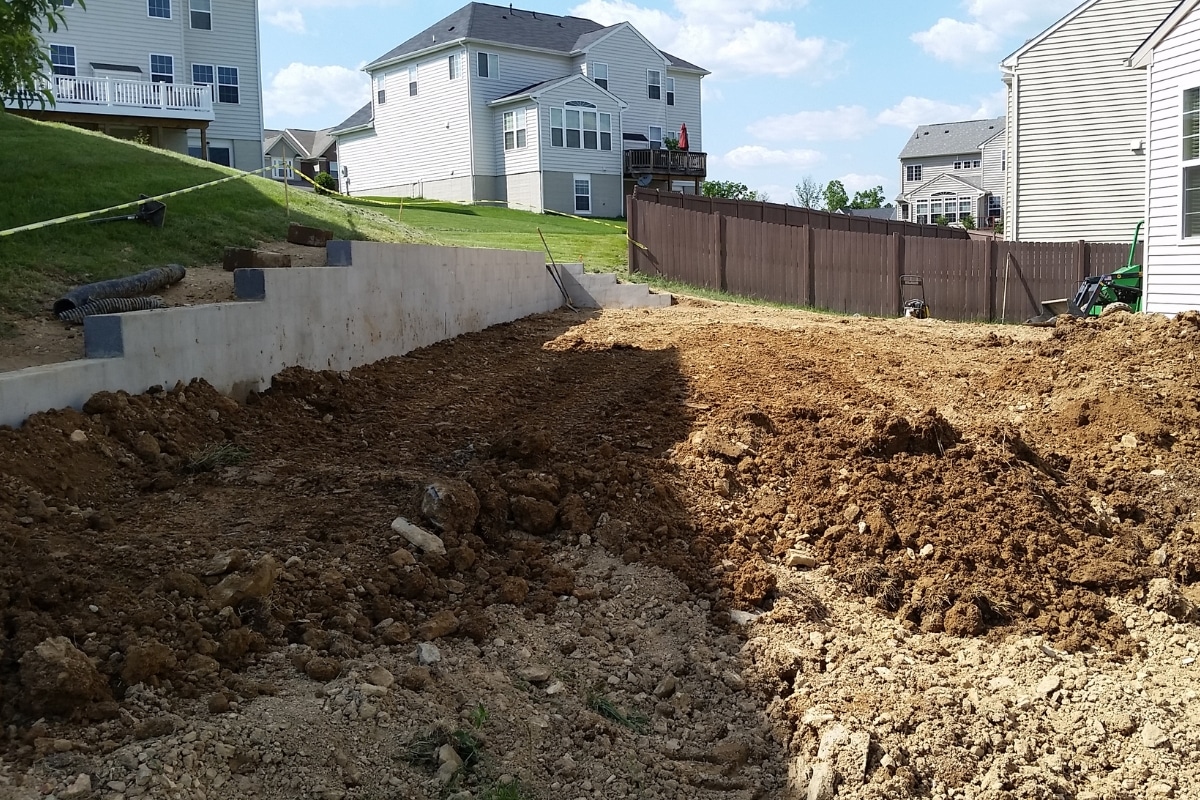
Poor Soil Grading Around the Foundation
When soil near your home isn’t properly graded during construction, it often slopes toward the foundation rather than away from it. This inward slope directs rainwater and runoff straight to your home’s base, where it accumulates and saturates the soil.
Over time, the trapped moisture fosters mold growth, wood rot, and poor air quality, weakening the home’s structure.
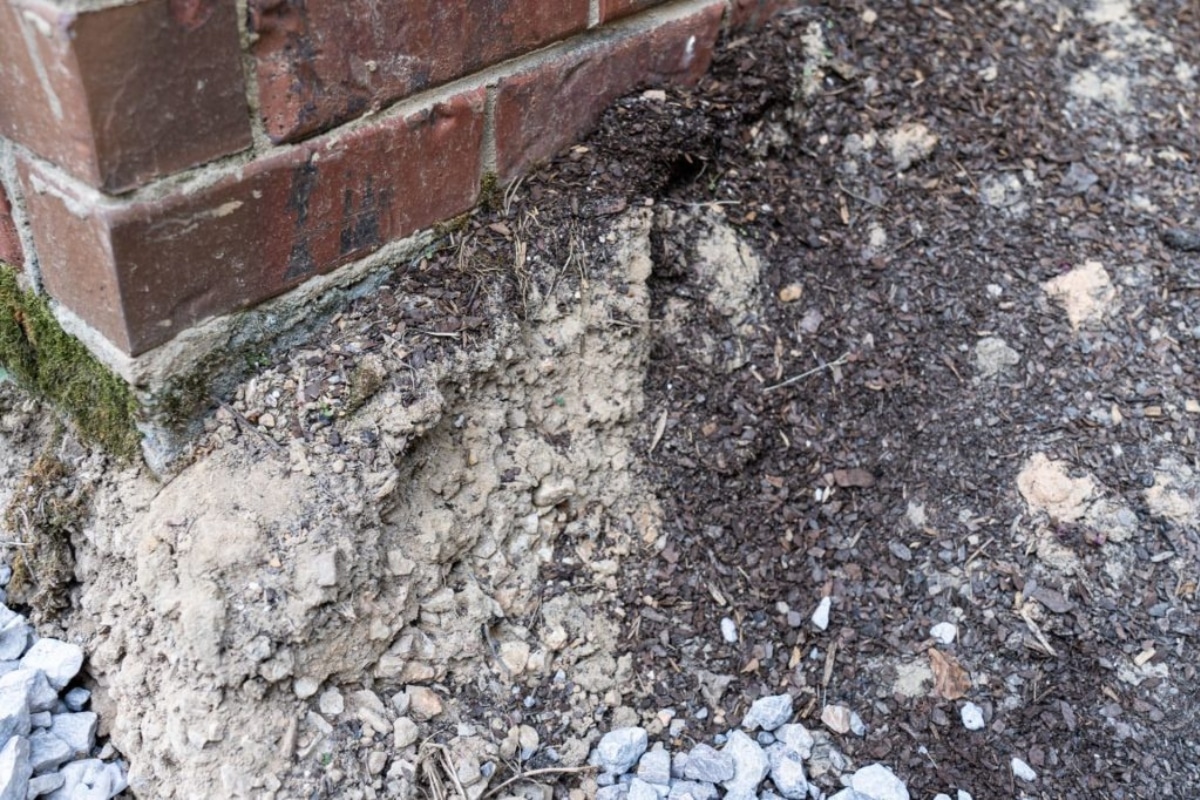
Erosion Over Time
Erosion occurs gradually as heavy rain, wind, or poor drainage wears away the soil around your home. Over time, this natural process alters the landscape slope, causing it to shift toward the foundation.
As water accumulates in these eroded areas, it saturates the soil and seeps into the crawl space. This constant moisture raises humidity levels, promotes mold growth, damages the crawlspace’s floor joists, and exacerbates drainage problems.
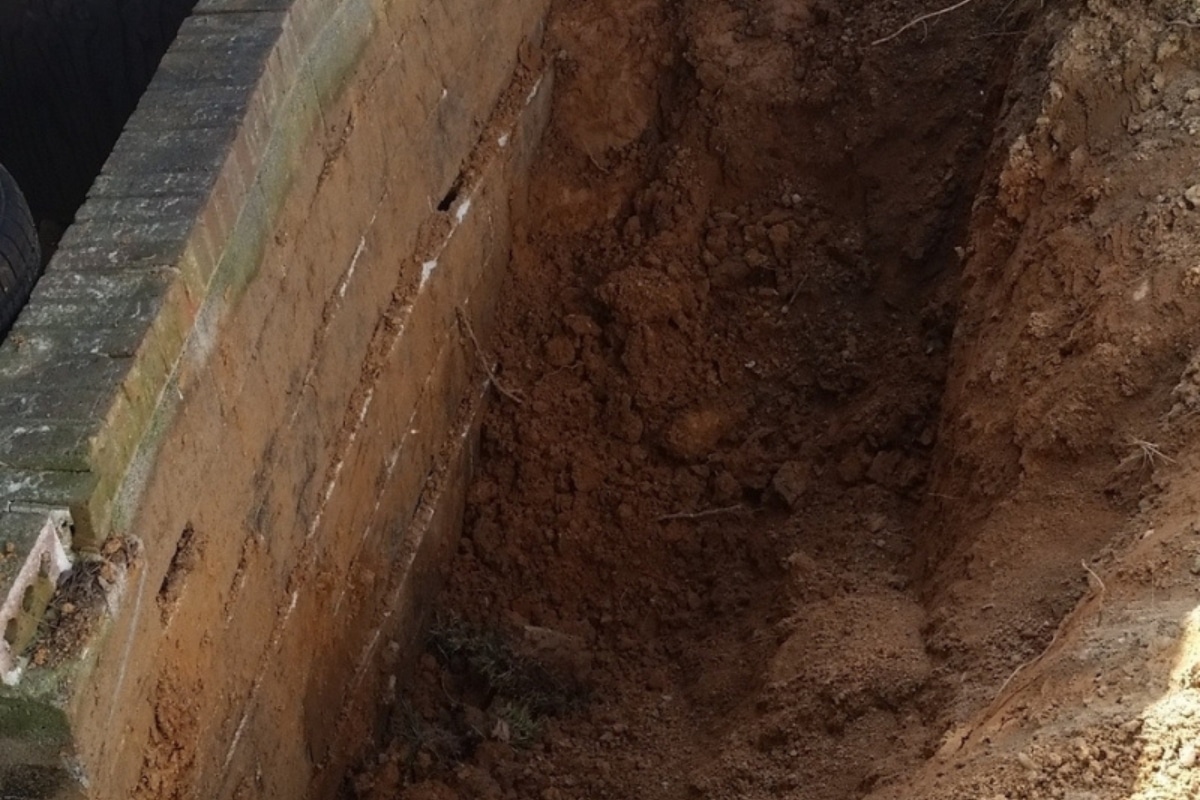
Landscaping Features That Trap Water
Poorly designed landscaping elements like flower beds, retaining walls, and decorative edging can unintentionally block the natural flow of water. Instead of draining away, rainwater collects near the foundation, saturating the surrounding soil. This persistent water buildup increases moisture levels in the crawlspace, fostering mold growth, wood rot, and pest infestations.
Prolonged dampness weakens wooden supports and beams, leading to structural and moisture-related problems that compromise the home’s stability over time.
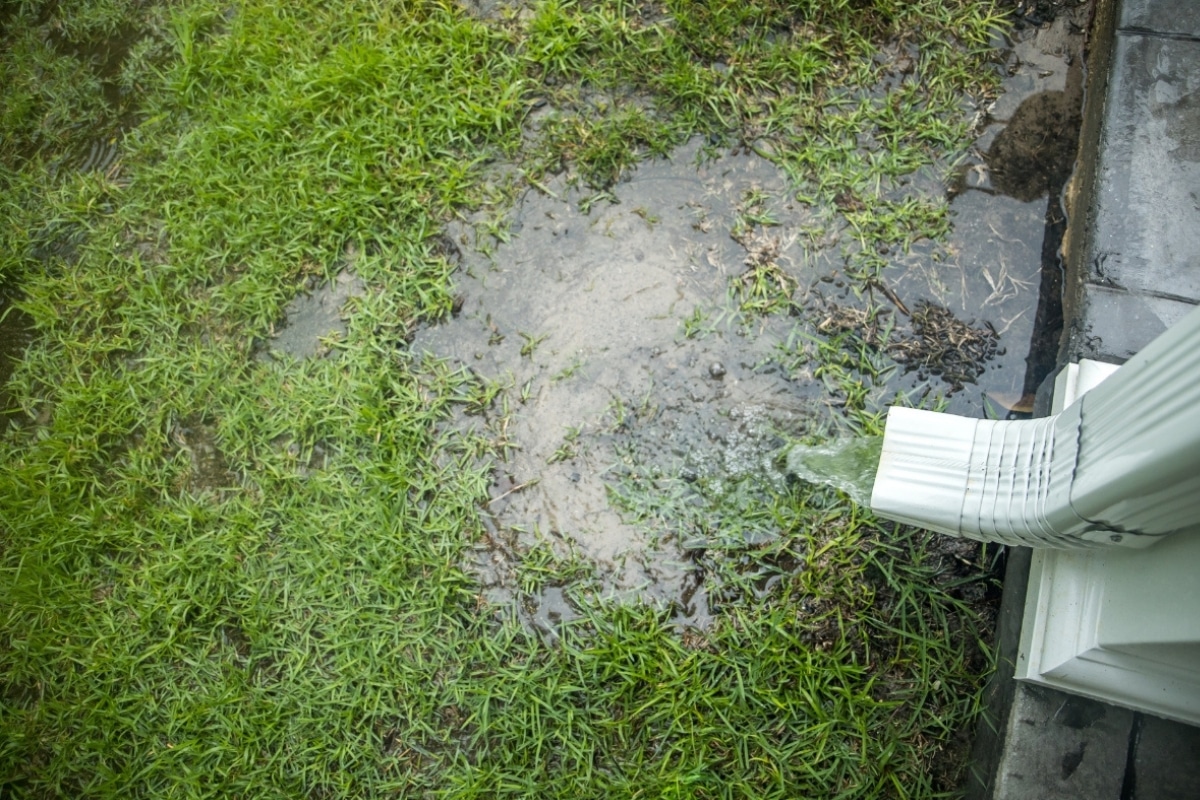
Downspout Discharge Near the Foundation
Improperly placed or short downspouts can discharge water directly near your home’s foundation. Instead of diverting rainwater away, the runoff accumulates around the base of your home, saturating the soil and creating ideal conditions for moisture intrusion.
This constant exposure raises humidity levels in the crawlspace, leading to mold, insulation damage, and wood rot. Over time, the excess moisture weakens your foundation’s stability and promotes long-term crawlspace issues.
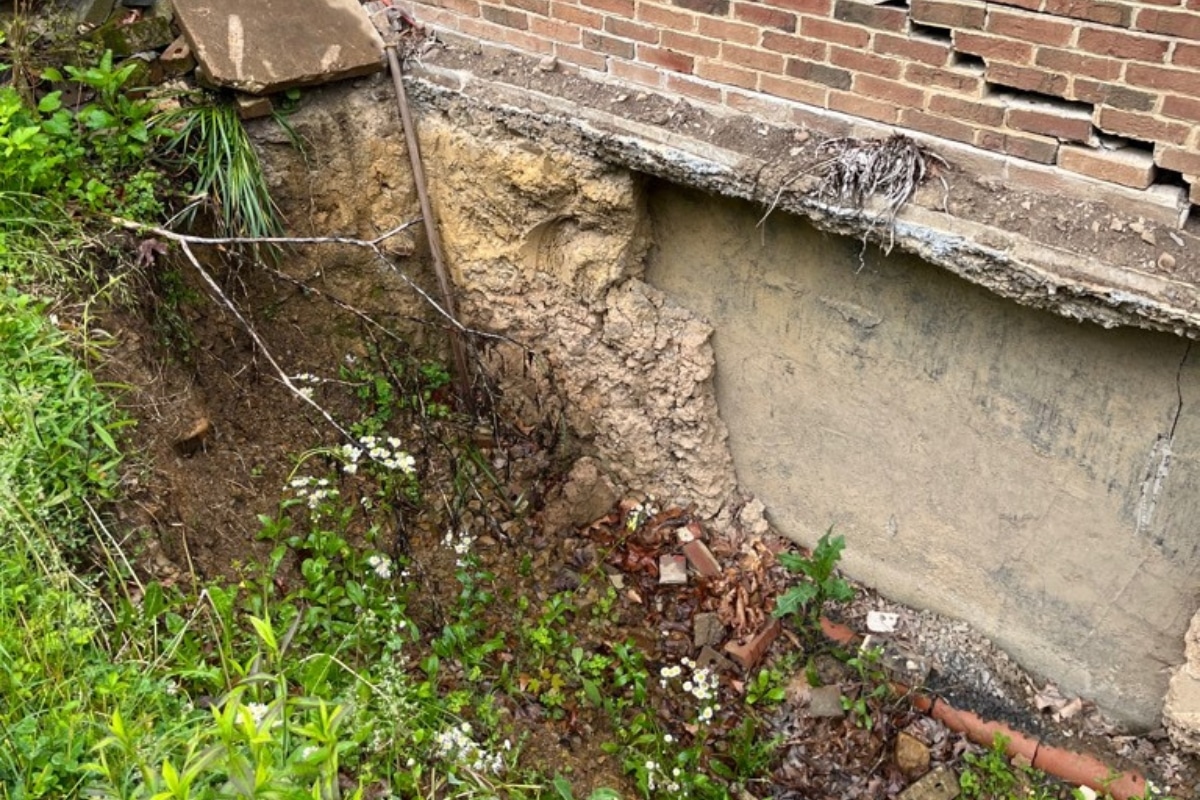
Natural Settling of the Ground
Over time, the soil around your home naturally settles due to gravity, weather changes, and ground shifts. This settling can alter the landscape’s slope, causing low-lying areas to form near the foundation.
These depressions allow rainwater and runoff to collect and seep into the crawlspace, raising moisture levels and fostering mold growth. Settling soil also creates uneven pressure on your foundation, leading to cracks, instability, and increased crawlspace damage.
Effective Solutions for Crawl Space Damage Caused by Improper Landscape Grading
LUX Foundation Solutions provides customized solutions to address crawl space damage caused by poor grading, including:
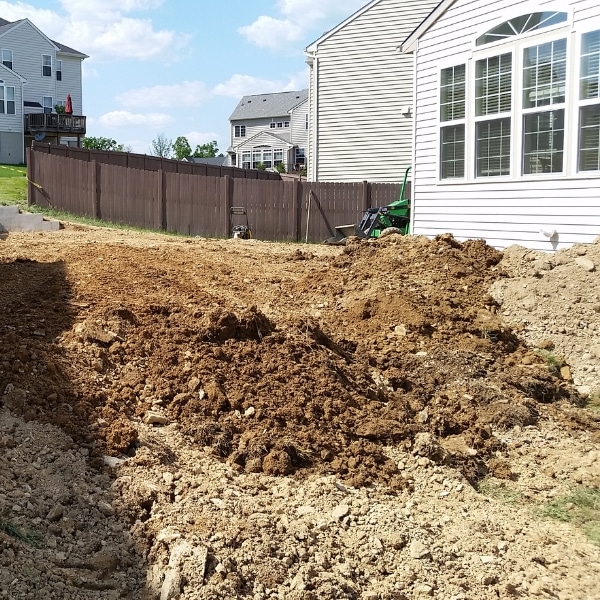
Regrading the Soil for Better Water Flow
Regrading involves reshaping the soil around your home to ensure it slopes away from the foundation, directing water safely away. Improper grading causes water to pool near your foundation, increasing crawlspace moisture and structural damage.
The LUX team uses precise techniques and equipment to achieve proper soil grading. This simple yet highly effective solution minimizes water intrusion, reduces crawlspace humidity, and safeguards your foundation from long-term damage.
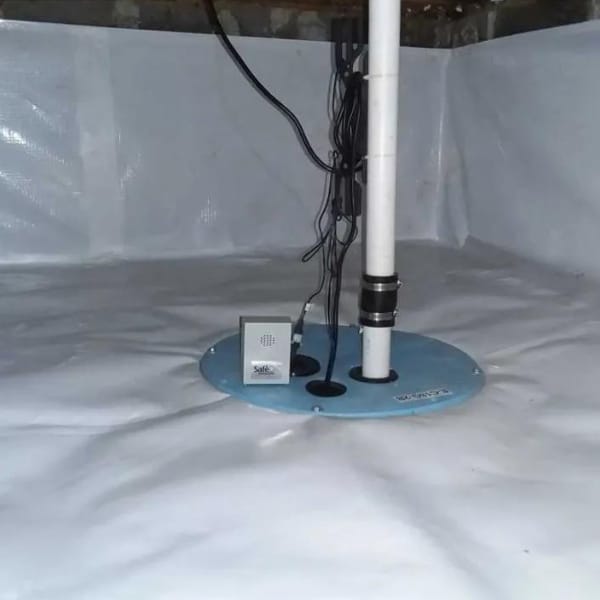
Installing Drainage Systems
Installing crawl space drainage system collects and redirects water away from your home’s foundation. This prevents pooling, which contributes to crawl space moisture, mold growth, and foundation damage.
Our experts customize and install advanced drainage solutions that efficiently manage water flow, ensuring your crawlspace remains dry, protected, and free from moisture-related problems.
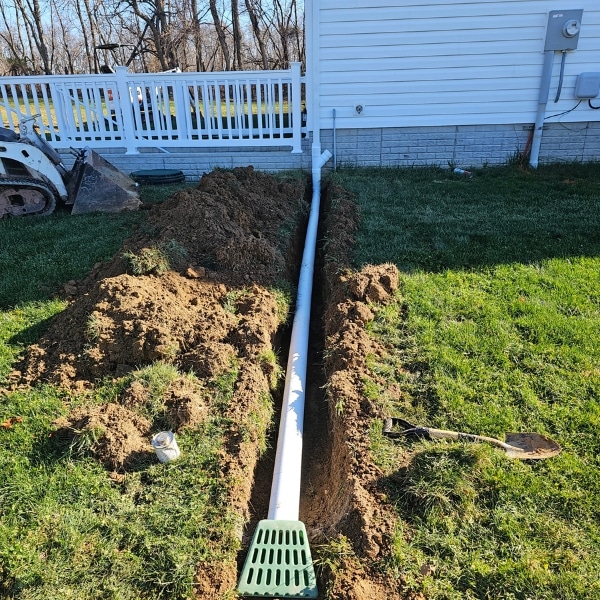
Extending Downspouts
Short or poorly placed downspouts often dump rainwater too close to the foundation, saturating the soil and increasing crawlspace moisture. Extending downspouts helps channel water further away from your home.
We will evaluate your current downspout placement and install strategic extensions to redirect runoff safely. This prevents soil oversaturation, reduces humidity in the crawl space, and protects your foundation from water intrusion and long-term damage.
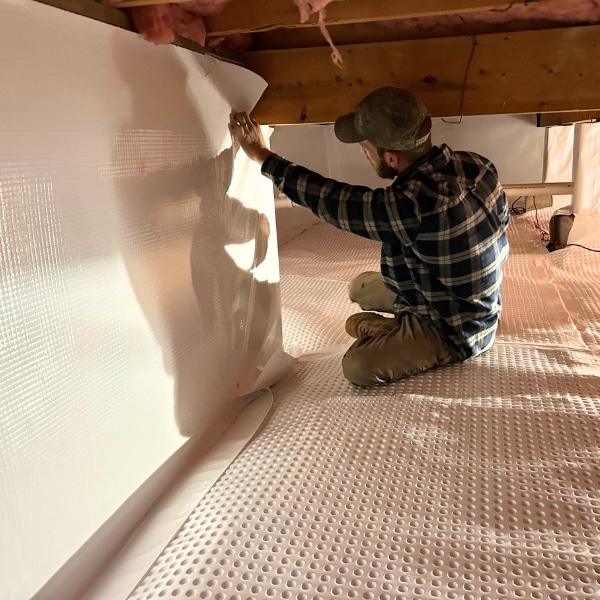
Crawl Space Encapsulation
Crawl space encapsulation involves sealing the entire area with a durable vapor barrier to block moisture from entering. Even with proper grading and drainage, water pooling near the foundation can still create moisture issues. Encapsulation provides an added layer of protection, reducing humidity, mold risks, and wood rot.
We pair encapsulation with grading and drainage solutions for long-term crawlspace health, improving air quality, and preserving your home’s structure.
Each solution is tailored to your property to ensure long-term protection. Contact us today for your free estimate!
Fix Improper Landscape Grading to Safeguard Your Crawl Space with LUX Foundation Solutions
Improper landscape grading doesn’t just affect your yard—it impacts the health of your crawl space and the stability of your home.
At LUX Foundation Solutions, we provide comprehensive solutions to address grading issues, protect against moisture, and ensure the long-term health of your foundation. From regrading your landscape to encapsulating your crawlspace, our team has the expertise to safeguard your home.
We have helped many homeowners with crawl space repairs in Northern Virginia, Shenandoah Valley, North Central Virginia, West Virginia, and surrounding areas!
Don’t let improper landscape grading compromise your crawlspace or foundation. Protect your home, prevent foundation problems, and lower crawlspace moisture risks—schedule a free estimate with LUX Foundation Solutions today!
Request a free Estimate
FAQ's
Signs include water pooling near your home after rain, visible soil erosion, or foundation cracks. If you notice consistent dampness or mold in your crawlspace, it’s likely caused by improper grading. A professional inspection from LUX’s expert team can confirm the issue and recommend solutions.
Improper grading causes rainwater and runoff to flow toward your foundation instead of away, saturating the soil. This increases moisture levels in your crawlspace, creating an environment ripe for mold growth and wood rot. Over time, foundation settlement can occur, leading to cracks and structural instability.
LUX Foundation Solutions offers comprehensive solutions to redirect water flow and protect your crawlspace from these long-term issues.
Fixing grading issues often involves regrading the soil around your home to ensure a proper slope away from the foundation. Solutions such as installing French drains, extending downspouts, and adding vapor barriers enhance water management. We combine these methods to create a tailored plan that keeps your crawlspace dry and protects your home from future water damage.
Yes, improper grading can increase energy bills by raising humidity levels in your crawlspace. Excess moisture forces your HVAC system to work harder to regulate indoor temperatures, especially during summer and winter.
Additionally, damp insulation becomes less effective, further straining your system. By addressing grading issues, you can reduce crawlspace moisture, improve energy efficiency, and lower utility costs over time.
